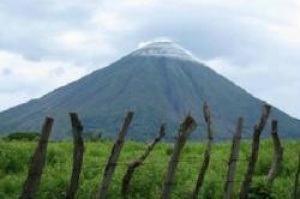ATM 2016: Responsible tourism tops agenda in Dubai

Responsible tourism will headline several seminar theatre sessions at Arabian Travel Market 2016 as government legislation, increased focus on the traveller footprint and the impact of natural disasters on country economies put the spotlight on the importance of effective sustainable travel strategies.
In 2015, ATM welcomed over 50 exhibitors with a responsible tourism focus, and the number is set to grow this year.
Exhibitors including the ministry of tourism of Indonesia, Namibia Tourism Board, Gray Line and FHRI Hotels & Resorts join other hotel groups, tour operators, airlines and other industry sub-sectors are focusing additional resources on exploring new opportunities in responsible tourism.
According to certain industry commentators, responsible travel trends for 2016 include seeking out locally sourced food, traveller interest in the preservation of local culture and authentic experiences, ‘voluntourism’, pro-environmental hotel development and a significant focus on energy saving by operators as well as guests.
“More and more companies are re-evaluating their business model to incorporate responsible tourism products and programmes, and are using this as a tool to attract ethically and environmentally minded guests and clients as well as to support local government efforts or in response to legislated change,” said Nadege Noblet-Segers, exhibition manager, Arabian Travel Market.
ADVERTISEMENT
According to a 2014 Blue & Green Tomorrow’s consumer survey, 43 per cent of respondents said they would be considering the ethical or environmental footprint of their primary holiday, with almost ten per cent partially considering this when planning their travel.
As one of the region’s early adopters of sustainable practices, UAE headquartered TIME Hotels was the sponsor of a dedicated responsible tourism roundtable at World Travel Market London 2015.
“Since our inception, TIME Hotels has maintained its commitment to sustainable tourism initiatives and this is led from the top down with buy-in across all departments and from an increasing percentage of our guests,” said Mohamed Awadalla, chief executive, Time Hotels.
The company was the first in the Middle East to launch a programme which offered guests the chance to offset the carbon emissions generated during their stay, back in 2014.
This has since been rolled out to a number of its properties as well as attaining international hospitality sustainability certification.
Other responsible initiatives include a Slow Food programme and development of a suite of environmentally friendly meeting packages.
The line-up of responsible tourism seminars taking place at this year’s Arabian Travel Market includes two afternoon sessions on Tuesday April 26th, entitled ‘Coping with success, the sustainability challenge in the region’ and ‘Environmental leadership in the Middle East’; followed be a special master class on using responsible tourism for market advantage and to drive increased revenues.
“We are already seeing some great examples of best practice in the region especially when it comes to the environment, and with a number of exciting green building initiatives underway, there is a clear opportunity to raise global awareness of grassroots activity and secure additional business,“ said Noblet-Segers.
The UAE already has more than 5,000-square kilometres of protected natural areas with associated tourism opportunities.
These include Dubai’s Ras Al Khor nature reserve, Fujairah’s Bird Island and Abu Dhabi’s extensive Desert Islands programme.
Experiential tourism is another area where the Middle East needs to get into the traveller mind-set and create added value by developing exciting, forward-thinking responsible tourism programmes, and our master class session will build on the discussions from the WTM London 2015 roundtable event,” said Noblet-Segers.
Sharjah’s new ecotourism project in Kalba, which is scheduled to open in 2017, is a good example of experiential tourism, and will include a turtle rehabilitation centre, visitor centre and bird of prey centre.
ATM 2016 will build on the success of the 2015 edition with the announcement of an additional hall as Reed Travel Exhibitions looks to add to its record-breaking achievements of last year.
ATM 2015 witnessed a year-on-year visitor attendance increase of 15 per cent to over 26,000, with exhibiting companies increasing by five per cent to 2,873. Business deals worth more than US$2.5 billion were signed over the four days.

